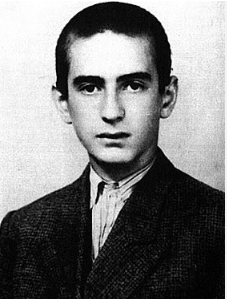"The Trap History Had Set for Us." Thoughts by Elie Wiesel, Memoirs

It seems that life is largely composed of two veins of thought: what should be and what is--i.e., theory and reality.
In his memoirs, Elie Wiesel relates a moment where theory and reality collided. The overall history of WWII, the setting for Wiesel's work, is well known; however, his thoughts are an insight that transcends time and space thus falling within the realm of general principles we can all learn from.
What those principles are, readers may determine for themselves.
August Glen-James, editor
The truth is that, in spite of everything we knew about Nazi Germany, we had an inexplicable confidence in German culture and humanism.
We knew something of what was happening beyond our borders. The Hungarian and Yiddish newspapers offered vague reports, but we knew things were bad. These were trying times for Jews in German-occupied territories. That was only the be expected. Hitler had made no secret of his criminal intentions toward our people, and we knew very well that hatred backed by power always meant catastrophe. And Hitler’s hatred of the Jews was so visceral and his power so absolute that we had to expect the worst. But we could not anticipate the horror of reality. From Polish refugees passing through our town, all bearing bad news, we heard tales of the German army’s invincibility and brutality. We were told of arbitrary arrests, systematic humiliation, collective persecution, and even of pogroms and massacres. And yet.
The truth is that, in spite of everything we knew about Nazi Germany, we had an inexplicable confidence in German culture and humanism. We kept telling ourselves that this was, after all, a civilized people, that we must not give credence to exaggerated rumors about its army’s behavior.
Yes, that’s what many Jews in our town thought, including my mother. We all fell into the trap history had set for us. During World War I the German army had rescued Jews who, under Russian occupation, had been beaten, ridiculed, and oppressed by savage Cossacks whose mentality and traditions were steeped in anti-Semitism. When they left, our region enjoyed a spell of calm. The German officers had been courteous and helpful, unlike the Cossacks. Lulled by memories of the Germans of that era, the Jews refused to believe that their sons could be inhuman. In this the Jews were not alone. Neville Chamberlain reacted in much the same way.
Source: Wiesel, Elie. All Rivers Run to the Sea: Memoirs. Schocken Books. New York. 1995.
